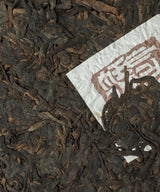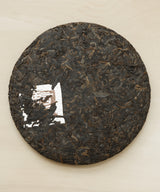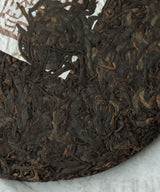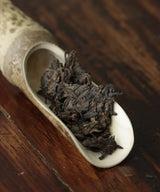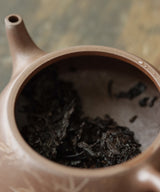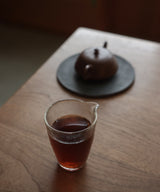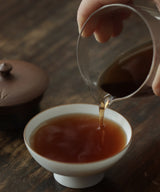Bulangshan 2018
布朗山熟普2018
Harvest
Spring 2018
Origin
Menghai, Yunnan
Bulangshan is a vast and remote mountainous region approximately 2 hours from the city of Mehngai in the southernmost part of Yunnan, bordering Myanmar. As an enduring environment for ancient rainforests, rare species of plants, and the remaining few Asian elephants, it is where we may still appreciate the biodiversity of Yunnan.
Bulangshan translates as “Bulang Mountain,” Bulang being the name of the indigenous people who have inhabited Southern Yunnan for thousands of years. Bulang people are the earliest known people in the world to cultivate, craft, and drink tea! Thus, this incredible place we call Bulangshan, is also the oldest tea mountain in Yunnan. It is home to two of the oldest and most prestigious villages for pu'erh: Laobanzhang and Laomane, whose history spans 1400 years. The remoteness of this region, and the efforts of its indigenous people, has meant that many tea gardens with old arbor pu’erh tea trees were saved from being cut down.
This pu'erh is from tea maker Huang Rong, whose family has been inhabitants of a small village in the Bulangshan called Weidong for generations.
Weidong village is situated on the other side of the mountain from the famous Laobanzhang village. The people of Weidong originated from Laobanzhang, moving across the mountain approximately 180 year ago to form what became known as Weidong. The seeds of pu’erh tea trees planted in Weidong were brought over from Laobanzhang, and therefore the teas from these villages resemble one another, and speak to the shared origin of their people.
Huang Rong started a small pu’erh co-op with 6 other villagers in Weidong. The co-op’s objective is to demonstrate a commitment to natural, biodynamic farming and to preserve the land and ecosystem where they live for future generations. They do not use any pesticides, sprays or artificial fertilizers, and they do not over-harvest or exploit the pu’erh trees in response to demand: their trees are only harvested twice a year, in spring and in autumn.
The trees for this pu erh are around 100 years old, and sit in a tea garden at 6000 ft elevation. The leaves are harvested in April, and fermented for three months with strict controls for the temperature and humidity. After fermentation, the tea was aged at room temperature for six months, and compressed into cakes. These teas carry the vast historical time scale of their region with them, as the tea seems suited to ancient palates; mouths that have never known Doritos or confection.
When we brew this tea it yields a rich, mahogany colored liquor that smells like sweet jujube dates and warm, wet earth. The mouthfeel is clean and heavy with viscosity – it drops into us like something oily would. Both this sensation and the taste it carries – rice, aged wood, soil – are soothing and expanding. To drink this tea is to be placed in an old forest to wander – it is at once enveloping and delimiting.
. . .
Brewing guide
| Tea | 4 g |
| Temperature |
100°C |
| Water | 120 ml |
| Steep time | 10 - 60 sec |
| No. of infusions | 8 |

